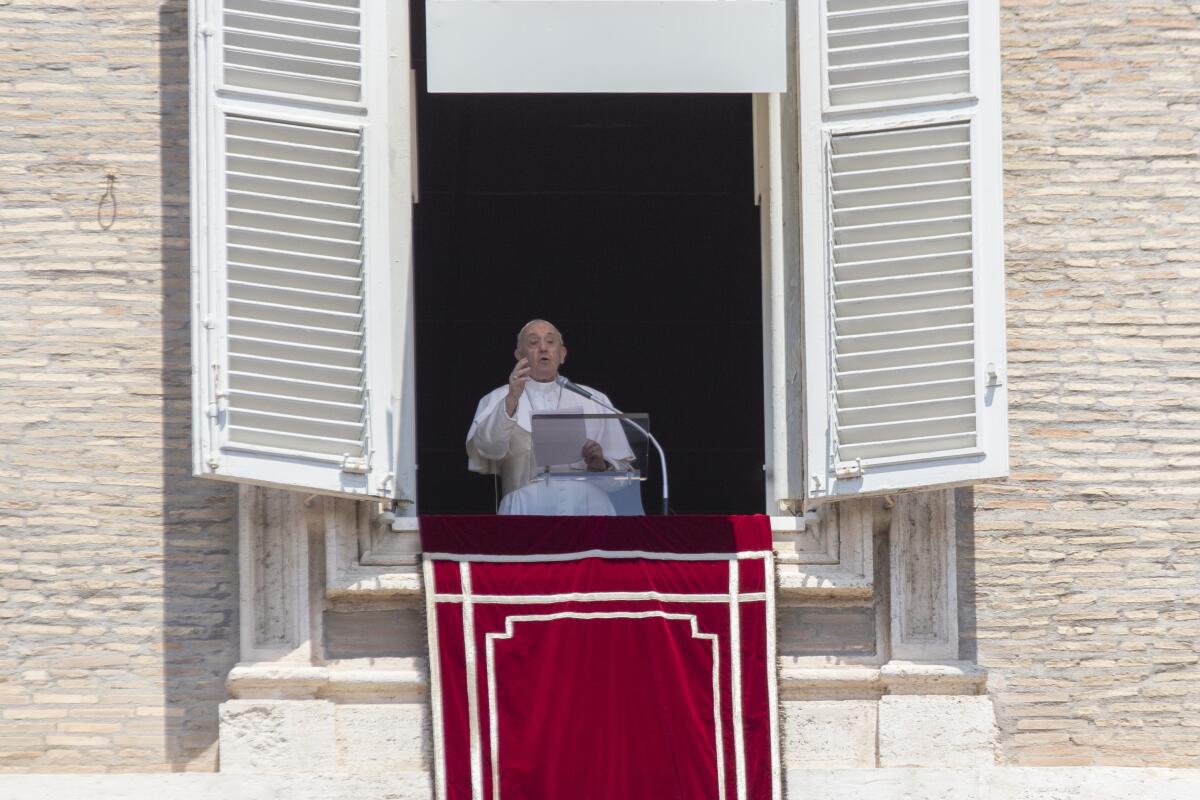Pope ‘deeply pained’ over Turkey’s conversion of Hagia Sophia from museum to mosque

- Share via
VATICAN CITY — Pope Francis says he is “deeply pained” over the decision by Turkey’s president to change the status of Hagia Sophia — which was originally built in Istanbul as a Christian cathedral — from a museum to a mosque.
In a brief improvised remark, Francis noted that the Roman Catholic Church marked Sunday as International Day of the Sea. “And the sea brings me a little far away with my thought, to Istanbul,” the pontiff said, speaking from his studio window overlooking St. Peter’s Square. “I am thinking of St. Sophia and I am deeply pained.”
Francis said no more but was clearly referring to the move by Turkish President Recep Tayyip Erdogan to formally convert the monumental building back into a mosque.
The colossal Santa Sophia cathedral, an iconic structure that now attracts visitors from the world over, was turned from a place of Christian worship into a mosque after the Ottomans conquered the city in 1453. The Turkish secular government in 1934 decided to make it a museum.
The European Union also criticized the decision to turn the building into a mosque. “When I see now what is happening with Hagia Sophia, that is a blow,” Luxembourg Foreign Minister Jean Asselborn said at a meeting Monday of the bloc’s top diplomats.
The pope and the EU added their voices to strong objections by the head of the Geneva-based World Council of Churches. That organization described its “grief and dismay” in noting that Hagia Sophia has been “a place of openness, encounter and inspiration for people from all nations.” The council’s membership comprises Protestant, Orthodox and Anglican churches.
Erdogan, who counts many observant Muslims as supporters, declared the monument open for Muslim worship last Friday after a high court annulled the 1934 government decision.
More to Read
Sign up for Essential California
The most important California stories and recommendations in your inbox every morning.
You may occasionally receive promotional content from the Los Angeles Times.










